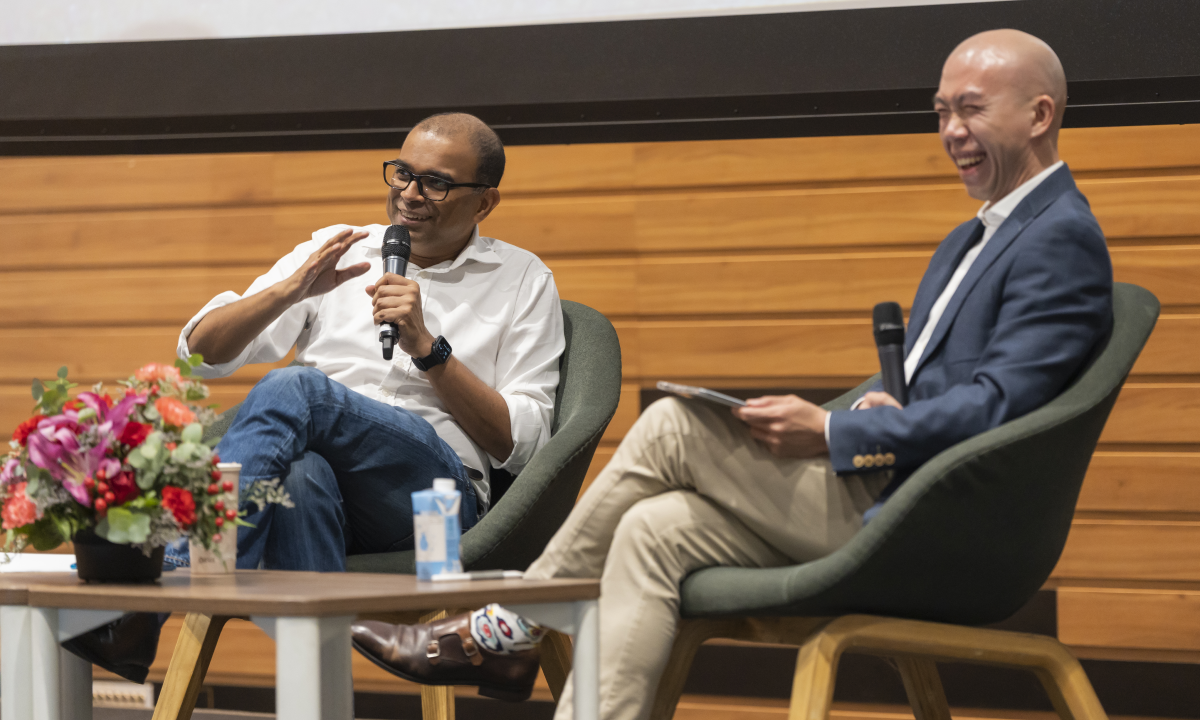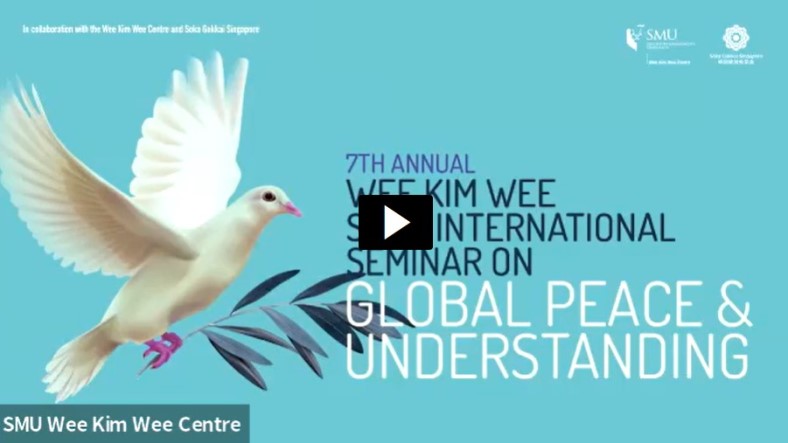
Each year, SMU hosts its annual Wee Kim Wee Soka International Seminar on Global Peace and Understanding. Held on 16 February 2023, this year’s event focused on the big questions explored by SMU’s Core Curriculum as they relate to wealth and poverty. It brought together academics, policymakers, practitioners, and observers from around the world to discuss new ways of thinking about how wealth and poverty influence our lives today.
As part of the event, SMU was honoured to welcome Dr Janil Puthucheary, Senior Minister of State (SMS), Ministry of Communications and Information who delivered a keynote lecture titled “The Future of Meritocracy under Forward Singapore”.
The Wee Kim Wee Soka International Seminar is a key platform that fosters important conversations about some of the most pressing issues facing our contemporary world. It is an opportunity for top stakeholders to generate meaningful dialogue. This year's theme sought to answer questions such as: How do we create pathways that foster economic prosperity? How do we ensure everyone has access to these pathways? What role does technology play in levelling the playing field when it comes to wealth disparity?
Support at every stage
During his keynote address, Dr Puthucheary discussed the importance of crafting policies that will foster more equitable pathways to educational success in Singapore. He noted that meritocracy must be maintained if we are going to create a society with greater equality. To achieve this goal, he emphasised the need for collaboration among different stakeholders—public and private—to make sure everyone had access to educational opportunities.
Simply put, meritocracy is the belief that people should be judged and rewarded based on their abilities and achievements. In other words, those who work hard and excel should be rewarded with greater opportunities than those who do not, regardless of their background. But, as we can all attest to, this concept is far from perfect. It is constantly evolving and needs to be improved if we are ever going to achieve true equity.
“Meritocracy is in some ways a self-awareness that our measurement and definition of it is imperfect,” observed Dr Puthucheary.
“It is the process of employers, organisations, policymakers refining these measurements, to look out for people that are doing well in spite of their starting circumstances. It is the intent of an outcome, to do well on behalf of employee, student and constituent.”
Multi-stakeholder approach to sustainable education
Singapore has been bestowed with multiple accolades, but its quality education system is at the top of the list. After all, the city-state has long been established as a purveyor of high-quality education for all: Its government subsidises over 90 per cent of the cost of education up to pre-university level for its citizens; while bursaries and financial aid programmes are offered by tertiary institutions and government loans.
In particular, Dr Puthucheary highlighted the need for collaboration between industry, universities and other stakeholders to facilitate interdisciplinary breakthroughs. He noted that such collaborations are essential for ensuring that students have access to the best resources and can become well-rounded professionals who have the knowledge and experience to develop new technologies and make meaningful contributions to society.
“This is where your College of Integrative Studies resides, the intersections of conventional disciplines that will allow us to pioneer a path less taken to discover new greenfields and opportunities,” added Dr Puthucheary, referring to SMU’s seventh School, which was established in 2022 to allow the individualisation of majors to engage with the needs of the future.
Further, he brought up how technology could be used as a tool for creating greater economic mobility and can help bridge gaps between communities by providing them with valuable lifelong learning tracks. Dr Puthucheary stressed the importance of a cohesive community building a meritocratic Singapore. Initiatives such as ForwardSG, a national conversation aimed at shaping the country’s future and social compact, steer efforts towards creating opportunities for everyone — even against an increasingly fragmented global backdrop.
“What we are doing with initiatives like Forward SG is creating an open platform for our groups and communities to find out what is meaningful and purposeful to each of us, to foster a collective responsibility and to discuss and deliberate about the common good,” stated Dr Puthucheary.
“Meritocracy is not a purist, absolutist ideal but a tool that we use to remove the influence of determinants such as wealth and race. It is not a perfect tool, so in its application we have to constantly work out where it is not serving our best interests.”



